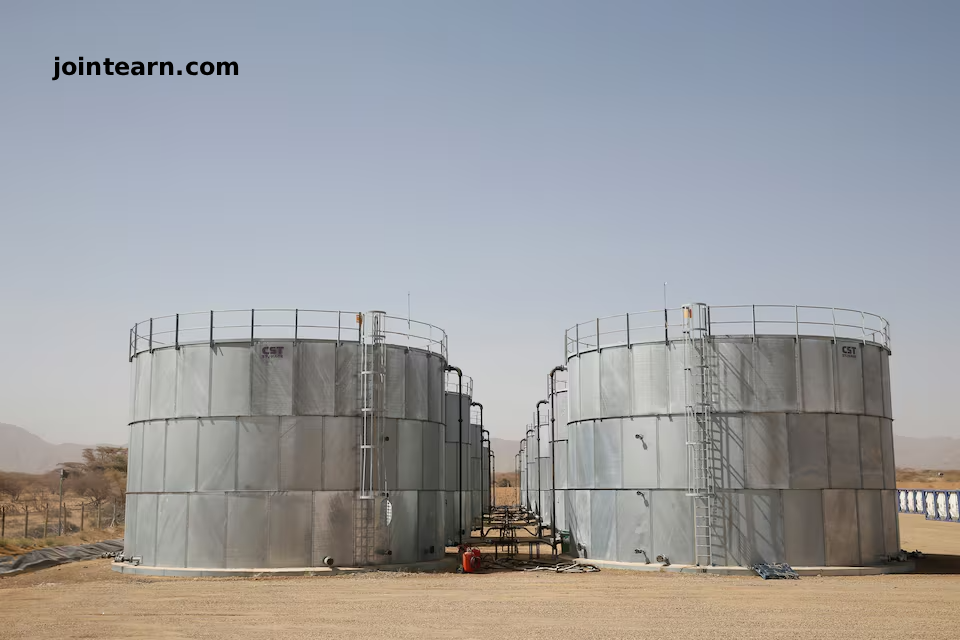
LONDON, November 21, 2025 – Shares of Tullow Oil (TLW.L) hit a record low on Friday after the West Africa-focused oil producer warned that 2025 production will likely fall at the lower end of its forecast. Mounting debt pressures, delayed payments from the Ghanaian government, and ongoing debt refinancing talks contributed to a sharp decline in investor confidence.
Production Challenges and Debt Pressures
Tullow Oil’s recent warning highlights challenges in maintaining production levels amid natural declines in wells, particularly in Ghana. The company expects 2025 output to range between 40,000-45,000 barrels of oil equivalent per day (boepd), with projections for 2026 falling to 34,000-42,000 boepd if declines persist.
Despite ongoing asset sales and operational progress in Ghana, cash flow remains strained due to delayed government payments and mounting financial obligations. Analysts note that Tullow’s combined credit risk is rated 1 by LSEG, signaling a high likelihood of debt default within the next year if refinancing efforts fail.
Stock Market Reaction
Tullow shares fell as much as 35% to 5.55 pence, implying a market capitalization of roughly £82 million. Investors reacted sharply to the company’s revised net debt forecast of $1.2 billion for 2025, up from the previous estimate of $1.1 billion.
CEO Ian Perks emphasized operational efficiency and cost control as immediate priorities:
“Our near-term priority remains to put Tullow on a long-term sustainable financial footing. To achieve this, we are focused on maximising operational efficiency in Ghana, cost optimisation, and refinancing the Group’s capital structure.”
Refinancing Efforts and Strategic Options
Tullow Oil is actively in discussions with bondholders, commodity traders, and other funding sources to refinance its capital ahead of its May 2026 bond maturity. The company is also exploring alternative options with creditors, including amend-and-extend exercises, to mitigate risks arising from current business performance and volatile market conditions.
Analysts highlight two potential catalysts that could unlock upside in the coming months:
- Refinancing the company’s 2026 bonds
- Settling outstanding tax disputes with the Government of Ghana
Tullow maintained its 2025 free cash flow guidance at approximately $300 million, assuming recovery of around $100 million in gas receivables owed by Ghana.
Outlook and Market Implications
Tullow Oil’s challenges underscore the risks facing mid-sized oil producers operating in regions with political and operational uncertainties. While the company works to stabilize its balance sheet and optimize production, investors remain cautious, reflecting the volatility in energy markets and the critical importance of debt management and operational efficiency for long-term sustainability.


Leave a Reply